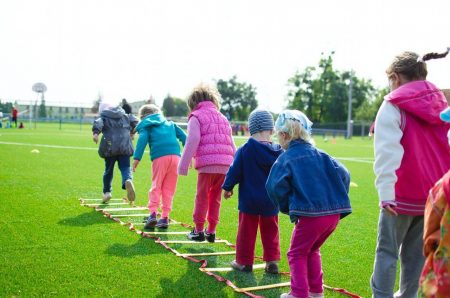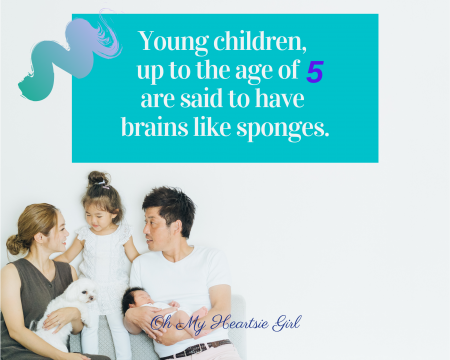 From quiet modesty observed in Japanese kids, unstructured play common in Finnish schools, all the way to the power of independence in the US, socialization is largely shaped by the culture in which your kids grow up. Their emotional and physical development are both shaped by your local social norms and expectations, not to mention the specific microcosm in which they spend the majority of their time.
From quiet modesty observed in Japanese kids, unstructured play common in Finnish schools, all the way to the power of independence in the US, socialization is largely shaped by the culture in which your kids grow up. Their emotional and physical development are both shaped by your local social norms and expectations, not to mention the specific microcosm in which they spend the majority of their time.
The pandemic has made many parents wonder about the best, most suitable ways we can rear our children and help them establish bonds (all the while building some kind of self-reliance, too). Social distancing, the lack of playdates, and other limitations have allowed many parents to feel a new appreciation for social interactions so crucial for their kids’ growth.
If we look at our own backyard and see what parents in other countries are doing, we might be better equipped to handle these crises better in the future, and help our kids develop stronger social skills. How Italians welcome kids to the table
How Italians welcome kids to the table
Okay, if you feel like taking your toddler out for a fun lunch, you know where to go. You have McDonald’s as well as a slew of other kids-friendly eateries where you know you don’t have to worry about getting messy or loud. Plus, when the place doesn’t get a tantrum for three minutes, the staff is worried. What you wouldn’t do is take your kids to a fancy, high-end restaurant at 9 pm, not in your wildest dreams.
In Italy, on the other hand, the practice of taking youngsters out for a fancy meal with the family is perfectly normal, and in fact, expected. Parents’ socialization is in no way separate from their kids. They start using culture as a way to introduce them to what life in Italy is about. Kids in Italy are taken to elegant restaurants, late-night dinners, art exhibits, and museums all the time. Yes, they get loud, and parents need to discipline them, but it’s still a way for grownups to create inclusive experiences for their kids. Finnish schools emphasize free play
Finnish schools emphasize free play
By now the whole world has heard that the Finnish model rocks. They seem to be able to raise kids that are socially adept, but very individualistic and independent, well-mannered, but still free to explore life. Parents do play a vital role in that process, but it seems that a large part of kids’ socialization happens in Finnish schools.
What they do is they organize 15-minute breaks between 45-minute classes for kids to rush outside and play, with supervision, but without instructions or limits. In addition to getting back to their next class all refreshed and eager to learn, kids also use the time to play freely with their peers and to develop essential social skills. They learn how to share, compromise, communicate, which helps them both in the classroom and with their peers. Australia and creative collaboration
Australia and creative collaboration
In the Land Down Under, especially in metropolises such as Sydney, parents often work and spend a portion of their time away from their kids. Sounds familiar? To enable healthy socialization outside of family time, they look for reliable childcare in Alexandria and similarly well-developed neighborhoods. Childcare in Australia plays a far more crucial role in kids’ lives than merely supervising them in the absence of parents.
Kids often play in small groups with their peers, and teachers provide them with educational, well-structured play sessions as well as plenty of free time to explore their friendships. In childcare, kids develop their very first social relationships outside of their families, allowing them to grow more independent over time. The value of empathy in Japan
The value of empathy in Japan
Here in the West, we might perceive Japanese parenting as, on one hand, overly strict considering how calm and modest their kids are, but also strangely proximal (dependent on close physical contact). The one key component of their parenting style is the focus on empathy – they teach their kids to consider the impact of their actions on those around them before they actually act.
Their approach reliant on proximal parenting and anticipating their kids’ needs has been linked to high levels of self-regulation, as well. That means that kids in Japan, in addition to developing empathy with their parents’ help and guidance, also have a strong ability to control and prevent emotional outbursts.
If you’re used to the US model that emphasizes fostering independence, the freedom of self-expression, and structured playdates, perhaps some of the listed examples don’t seem all that applicable. However, the more we learn and understand what other parents are doing, the easier it will be for all of us to discover new ways to nurture strong social skills in our little ones and prepare them for the world they are about to create.
[…]
Sophia
Discover How Children Learn And Why 0-5 Years Are So Important
 Children that are prepared to study frequently do better in life. This may be because they have a better education or because they like to learn and this knowledge helps them to achieve goals. If you want your child to
Children that are prepared to study frequently do better in life. This may be because they have a better education or because they like to learn and this knowledge helps them to achieve goals. If you want your child to 